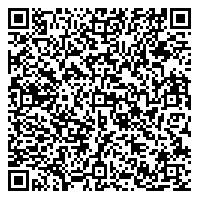The Impact of the Western Occupation on the Cultural Rooting of Modern Arabic Critical Movement: Ahmad Dayf, Taha Husain, and Mohammad Mandour as a Model
DOI :
https://doi.org/10.25255/jss.2020.9.4.1431.1456Mots-clés :
Cultural Rooting, Modern Arabic Criticism, Ahmad Dayf, Mohammad MandourRésumé
This study aims to investigate the retreat of the critical Arab mind by examining selected stances of three Arab modern critics: Ahmad Dayf, Taha Husain, and Mohammad Mandour. The study highlights the relationship between the culture and colonization to reach to determine three concepts: culture, orientalism and reformation. Thus, the effects of these concepts on intellectual retreat. Furthermore, the current study discusses the negative role of the universities and the necessity of changing their teaching methods in order to establish liberal criticism free of the other's dependency.
Téléchargements
Références
Badawi, A. (1986). Dirāsāt Almustashrqīn Hawla Sihhat Alshi’r Aljahili. Beirut: Dār Lebanon.
Dayf, A. (1921). Muqaddimat Lidrāsat balāghat Alarab. Cairo: Matba’at Alsafour.
Eglinton, T. (2000). Fiqrat Althaqafeh. Latakia: Dār Alhiwār.
Husain, M. (2012). Naqd Kitāb fi Alsh’ir Aljahili. Beirut: Dār Jadawil.
Husain, T. (1997). Fi Alshi’r Aljāhili. Tunisia: Dār Alma’ārif.
Ibn Mandour, J. (2000). Lisān Alarab. Beirut: Dār Sāder.
Ibrahim, T. (1937). Tārīkh Alnaqid Aladabi ‘inda Al’arab. Beirut: Dār Alhiqmeh.
Mandour, M. (1996). Alnaqid Almanhaji ‘inda Alarab. Cairo: Dār Alnahdah.
Williams, R. (2005). Alkalimat Almafāh. Cairo: Almajlis Ala’ala lillthaqafeh.










 a Creative Commons Attribution 4.0 International License.
a Creative Commons Attribution 4.0 International License.

